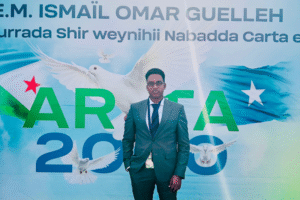

The extradition of Abdikarim Muse Qalbi-Dhagax to Ethiopia in late August this year highlighted the ambiguity of Somali citizenship. Qalbi-Dhagaxis a prominent member of the Ogaden National Liberation Front (ONLF), a group seeking self-determination for the Somali region of Ethiopia. He was said to have been visiting a relative in Gaalkacyo when Galmudug security forces captured and handed him over to the National Intelligence and Security Agency (NISA). A few days later the news of his rendition to Ethiopia had been made public.
The extradition created a storm for the new leaders of Federal Government of Somalia (FGS). Demonstrations erupted in some parts of the country, politicians and lawmakers publicly criticized the government’s decision. The social media savvy government failed to respond to the public outcry, or explain the basis for its decision to extradite Qalbi-Dhagax, until 6th September. The government linked the former Somali army officer to al-Shabaab and labeled the ONLF a terrorist group, but did not provide answers to the fundamental questions surrounding the extradition such as the legality of the cited agreements, and Muse’s right to get justice in Somalia. A parliamentary debate on the issue ended with the formation of a 15-member commission tasked with investigating the matter.
Somali Citizenship
In the 1940s Somali nationalist movements emerged in Somalia envisioning the unification of a greater Somalia divided by the colonial powers. The Somali Youth League (SYL) was the leading movement for this cause. For Somali nationalists, the union of British Protectorate and Italian Trusteeship in 1960 was a stepping stone to the unification of all five regions of ‘Greater Somalia’. The three remaining regions were French Somaliland, Ethiopian Somaliland, and Kenyan Somaliland.
Ethnic Somalis in the Ogaden region of Ethiopia and North Frontier District (NFD) of Kenya and Djibouti were considered Somali citizens in Somalia’s legal provisions. For instance, article 6 of the 1960 constitution states that “the Somali Republic shall promote, by legal and peaceful means, the union of Somali territories…” Moreover, article 3 of the Somali Citizenship Law [Law No. 28 of 22 December 1962] defined the Somali citizen as “any person who by origin, language or tradition belongs to the Somali Nation”.
Somalis Outside of the Republic
However, political developments in the region reshaped the future for ethnic Somalis in the Ogaden, Djibouti and NFD regions. Despite the population’s vote for amalgamation with Somalia, Britain disregarded the result of the early 1960s plebiscite in North Frontier District (NFD) and concluded to decide the status of NFD after Kenya independence. Further, the French territory, Djibouti, took its full independence from France in 1977 and opted to remain an independent state. As Dr. Abdirahman Abdullahi Badiyow claimed in his recent book Making Sense of Somali History, “The independent Djibouti state that did not join the Somali Republic was the first crack in the Greater Somalia project”.
Notwithstanding these developments, the military regime did not forsake its ambition to bring the missing regions under Somalia authority. The 1977-8 war was a suicidal and failed attempt to forcefully take over the administration of the Ogaden region from Ethiopia. Somalia was defeated after its major ally, the Soviet Union, sided with Ethiopia. The internal conflicts and the rise of factions in the 1980s in Somalia ultimately led to the total collapse of the central government in early 1991.
While Somalia has been in failed and recovering state in the past two and half decades, the Somali ethnic in the neighboring countries has been in a relative peace compared to those in Somalia and many accepted their Ethiopian and Kenyan identities. Currently, Somalis in the Ogaden and the then North Frontier District (NFD) now North Eastern Province have citizenship rights such as the right to vote, the right to public office, the right to reside, and the right to political association, among others, in Ethiopia and Kenya respectively.
While the economic and cultural integration of ethnic Somalis in the region is intact, the citizenship rights of Somali residents in Ethiopia and Kenya in a federal Somalia needs redefinition. After the recent rendition of Qalbi-Dhagax to Ethiopia and the public fury in Somalia and abroad, and the counter reactions of some ethnic Somalis in Ethiopia, Somalia needs a citizenship law that addresses the intricacies of who qualifies as a citizen in Somalia.
Federalism
Adopted in 2004 in Kenya by politicians and clan elders, Somalia is experiencing a new governance model: federalism. The actual implementation of a federal system in Somalia started during the Hassan Sheikh presidency (September 2012 – February 2017). During this term, Jubbaland (2013), South West (2014), Galmudug (2015) and Hirshabeelle (2016) were established with regional legislators and governments. Puntland had been an autonomous region since 1998, and it is considered the architect and main sympathizer of the federal system in Somalia. Moreover, Somaliland, a self-declared republic, was formed in 1991 and unilaterally announced its independence from the rest of Somalia. It has a government, bicameral parliament, currency and public administration institutions. The once central government of one president, one legislative assembly and a cabinet is currently devolved into seven presidents, seven councils of ministers, and nine legislative assemblies [the federal government and Somaliland have bicameral parliaments]. Mogadishu, the capital city of the country, is also vying for a special status with one of the options under consideration being the formation of a Benadir state with its own legislative and executive bodies.
The devolved administrative structure created new identities for Somalis. After the formation of Somaliland and Puntland, the terms Somalilander and Puntlander emerged. Somaliland hitherto treats non-Somalilander Somali ethnic as foreigners in the Somaliland territories. More recently, new identities appeared in the south such as Jubalanders and Muqdishaawiyiin.
Although the emergence of federal units and the new identities does not conflict with Somali citizenship, it affects Somali nationalism and citizenship in two ways. First, it shows further segregation and division of the Somali republic. Second, the new identities complicate some of the basic rights of citizens such as freedom of movement and residence, and the right of political participation. For instance, someone from region X cannot actively participate in local administrations in region Y because of the clan-based identity. The Districts and Regions Administration Act passed by Somali federal parliament in July 2013 also strengthens this identity and clan-based political participation. The law states that the Somali citizen can only seek public office in areas where his/her clan originally lived.
Need for Citizenship Law
Somalia needs a new citizenship law that answers the fundamental questions surrounding Somali citizenship. The law would be instrumental in clarifying three interrelated issues. First, it could elucidate the status and rights of Somali ethnic in the region in Somali Republic. Second, the law could address the right of political participation of Somali citizen in a federal Somalia. The emergency of federal member units and the identity politics dominated by the country’s power sharing complicated the right of every Somali citizen to reside and actively participate the politics and administration of all regions. Third, the citizenship law could also be an opportunity to revise the citizenship rights of dual nationals. According to Bronwen Manby, a number of African countries have legal provisions prohibiting dual nationals to hold senior public offices “on the grounds that the loyalty of such persons should not be divided”. The citizenship law could embark such debate in Somalia where dual nationals are currently dominant in top public offices.
Mahad Wasuge
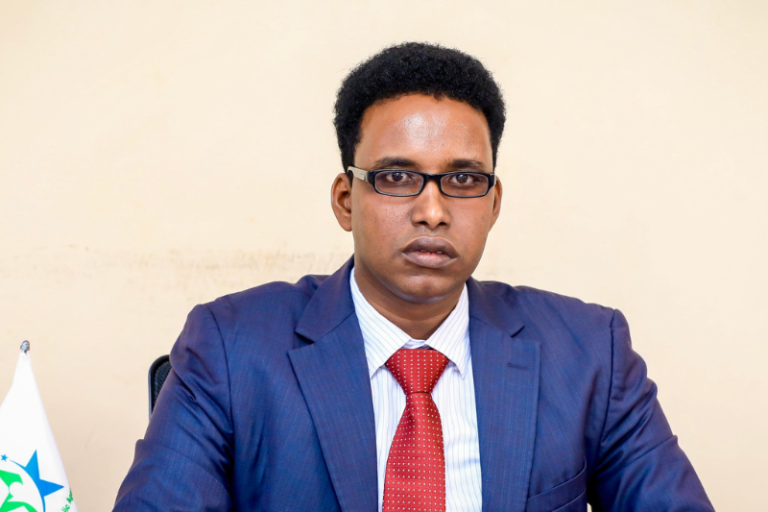
Is a researcher, teacher, podcaster and blogger. His work over the last decade has focused on teaching and researching governance, justice and social services in Somalia.


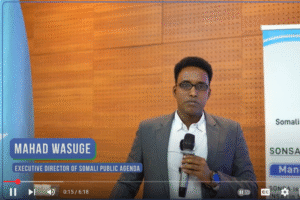

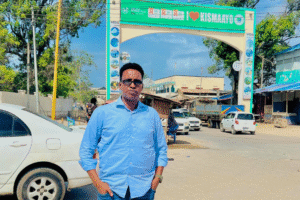
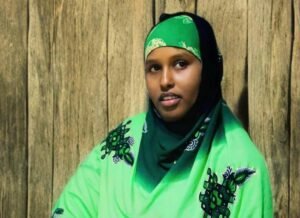


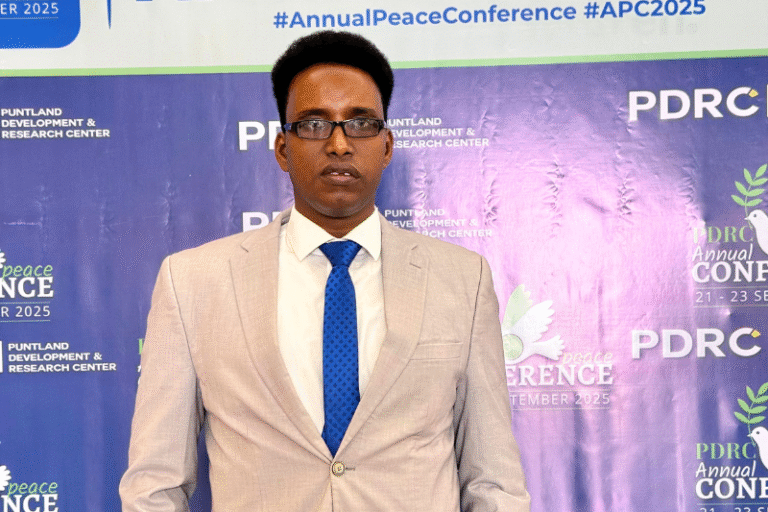

One Response
You highlighted useful points, such as background of Somali citizenship law and how it has been affected by the colonial powers.
For me I urgue the new citizenship law to exclude the of citizenship for those who hailed from outside the Republic borders ( NFD, ESRA, and DJabouti) regarding with international law that recognizes them as none Somalis.
Note that Somalia signed this law when we were joining to UN.